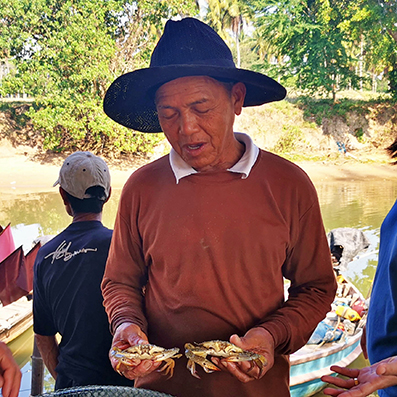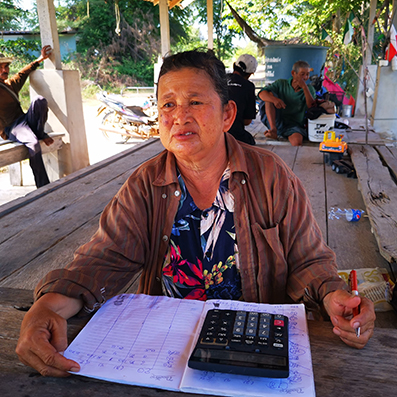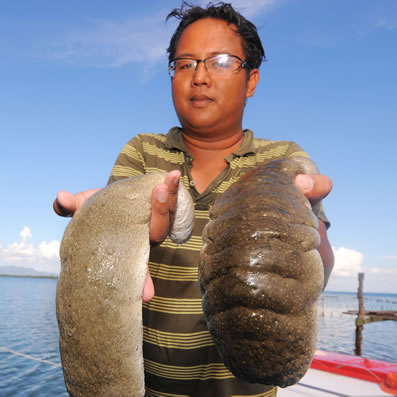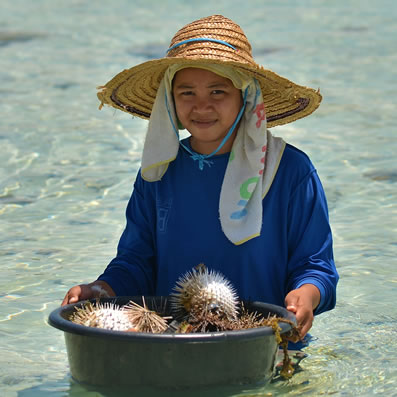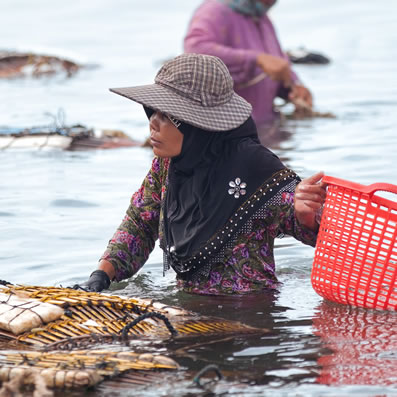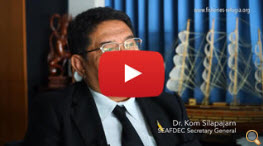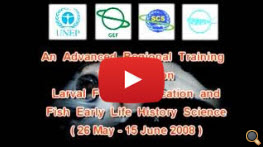THE SOUTH CHINA SEA FISHERIES REFUGIA INITIATIVE
FISHERIES REFUGIA PROJECT SITES
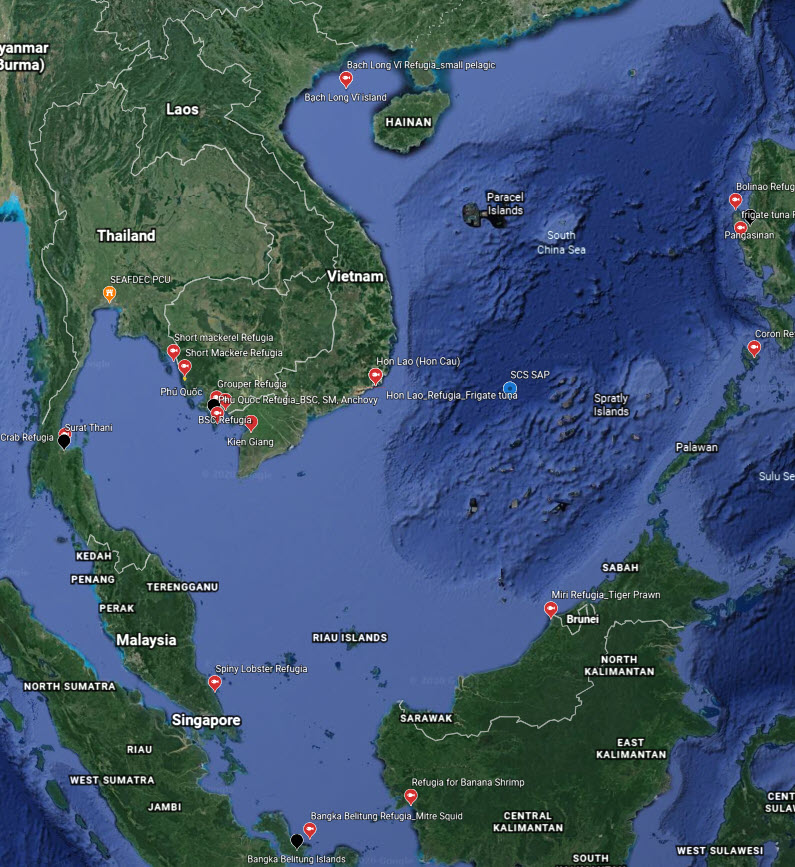 Click Here for
Click Here for More
Information
SCS SAP PRIORITY SITES (Habitat Linkages)
 All SCS SAP and
All SCS SAP and Fisheries Refugia
Priority Sites CHINA HABITAT
SITES CAMBODIA HABITAT
SITES INDONESIA HABITAT
SITES PHILIPPINES HABITAT
SITES THAILAND HABITAT
SITES VIET NAM HABITAT
SITES
Meet our Stakeholders
Social Media
Social Media
Improve the understanding among stakeholders of the ecosystem approach for establishment and management of fisheries Refugia in the Philippines
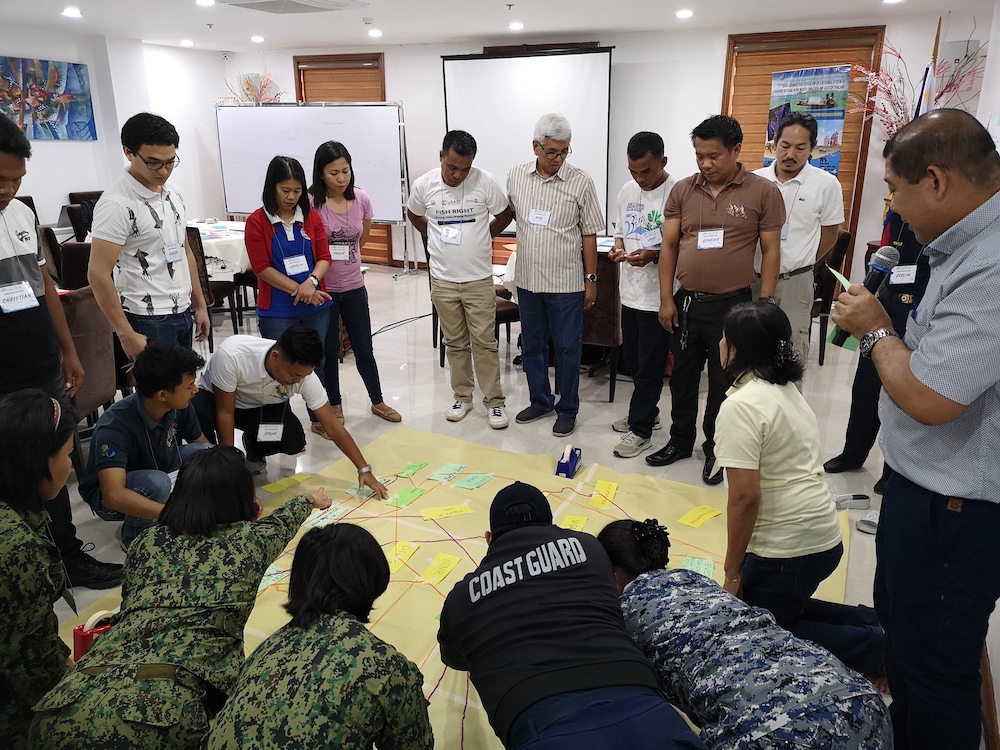
Photo: SEAFDEC/PCU
Effective fisheries management has always been a challenge, especially in complex multi-species, multi-gear fisheries. Traditional stock-based approaches have been mainly practical, with management measures often not taking other essential aspects of the fishing into account. As fisheries have declined over the past 30 years, the need for more effective and equitable management is increasingly evident in the Philippines.
The ecosystem approach offers practical and effective means to manage fisheries more historically. It represents a move away from fisheries management that focuses on target species towards systems and decision-making processes that balance environmental,
human, and social well-being with improved governance frameworks. The support for an ecosystem approach to fisheries management has long been in place through a range of global declarations and policy instruments. Recognition also exists at the national and regional levels as it offers the most practical and effective way to manage complex fisheries. However, the progress in developing ecosystem-based management plans has been plodding due to the complexity in the mechanisms of the different area-based management initiatives in the country, which requires coordination among various agencies that have interlacing functions, and the lack of experience in implementing this integrated and holistic approach. The above situations may affect the development of the enabling environments for fisheries refugia management at national and provincial levels, including policy reforms and enhancement of the science and information base for refugia management. The National Fisheries Research and Development Institution (NFRDI), in collaboration with the Bureau of Fisheries and Aquatic Resources (BFAR), conducted training programs under the GEF/UNEP/SEAFDEC on Establishment and Operation of a Regional System of Fisheries Refugia in the South China Sea and the Gulf of Thailand Project in three pilot sites namely Bolinao-Pangasinan, Coron-Palawan, and Masinloc-Zambales.
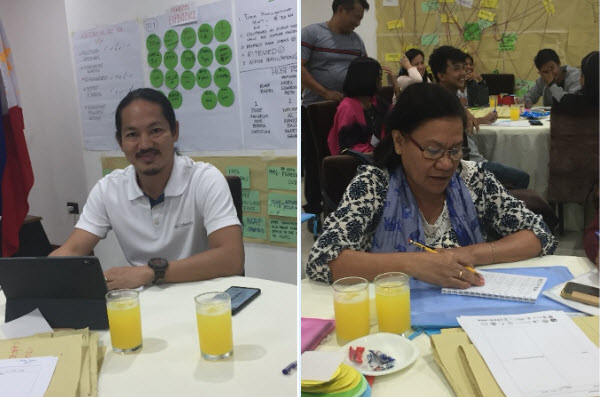
TThe five-day course training was designed to provide basic knowledge on the Essential Ecosystem Approach to Fisheries Management to equip participants with the practical skills to develop effective fisheries management plans using this approach. The Refugia Site-based Management Committee (RSMC) and representatives from the local government units and stakeholders, including the Department of Environment and Natural Resources (DENR), Marine Protected Area Network Unit, Philippines National Police Maritime, Coast Guard, School of Fisheries/University, and fishing communities attended the training. The training was facilitated by Dr. Romeo Cabungcal, Provincial Agriculturist of Palawan, and Mr. Noel Barut, National Coordinator of Fisheries Refugia Project in the Philippines, with assistance from the Project Management Office (PMO) of NFRDI. The course includes basic knowledge of fisheries refugia concepts and the principles of ecosystem approaches to fisheries management. Participants learned how to incorporate the EAFM concepts. They discovered no set form or shaped for fisheries management as it is country, context, culture-specific. They also learned how to identify critical threats to the fishery resource and habitat and their challenges at the community and national levels. Moreover, the participants learned how to develop management plans which link policy and actions.
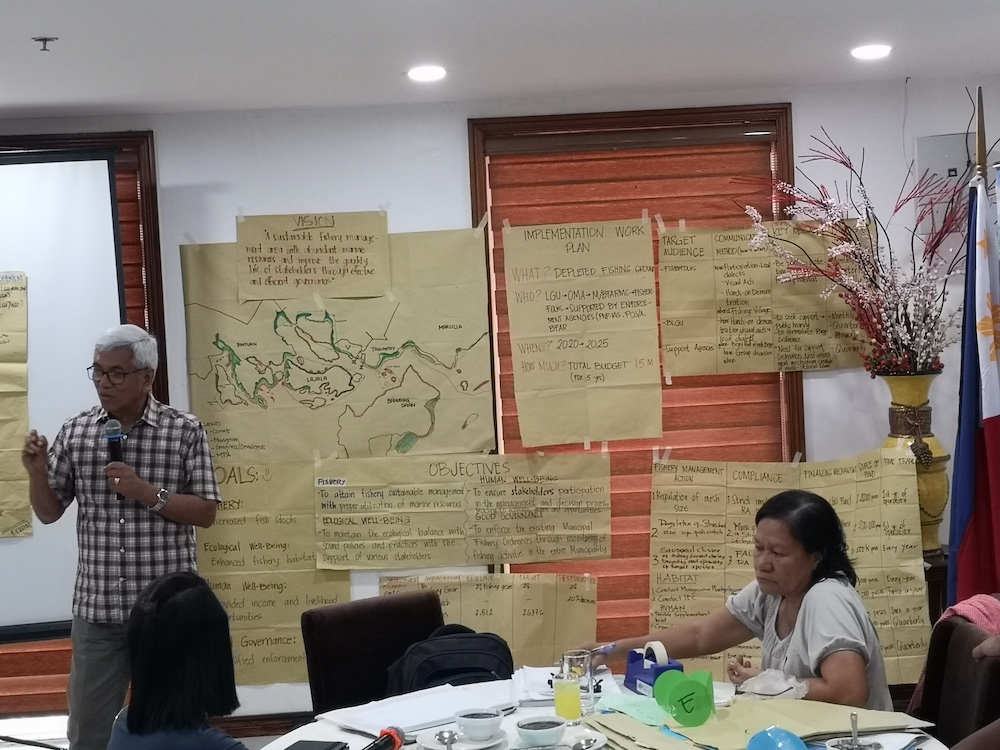
During the training, the participants were divided into groups to brainstorm the fisheries management processes and co-management, including defining the board Fisheries Management Unit Area, setting up teams and consultative groups, identifying and understanding the stakeholders, and working in the co-management processes. The groups also learned how the stakeholder engagements, identify and prioritize issues and goals, develop objectives, indicators, and benchmarks, and the management actions, compliance, finance, and finalized plans for effective management of fisheries refugia.

At the end of the training course, the lecture sessions, and the workshops conducted, the participants were able to develop initial inputs to the municipalities' MPAs and fisheries refugia management plan. More importantly, they were able to appreciate the processes in coming up with a resource management plan that will cover ecological well-being, human well-being, and governance. As a wrap-up of the five-day training, the participants presented the EAFM plans on their respective Fisheries Refugia sites with their feedback. They also developed their action plans and potential next steps for the municipality and agency. As part of their final output for the training, each group drafted a management plan consolidated into a single fisheries refugia management plan for each pilot refugia site.
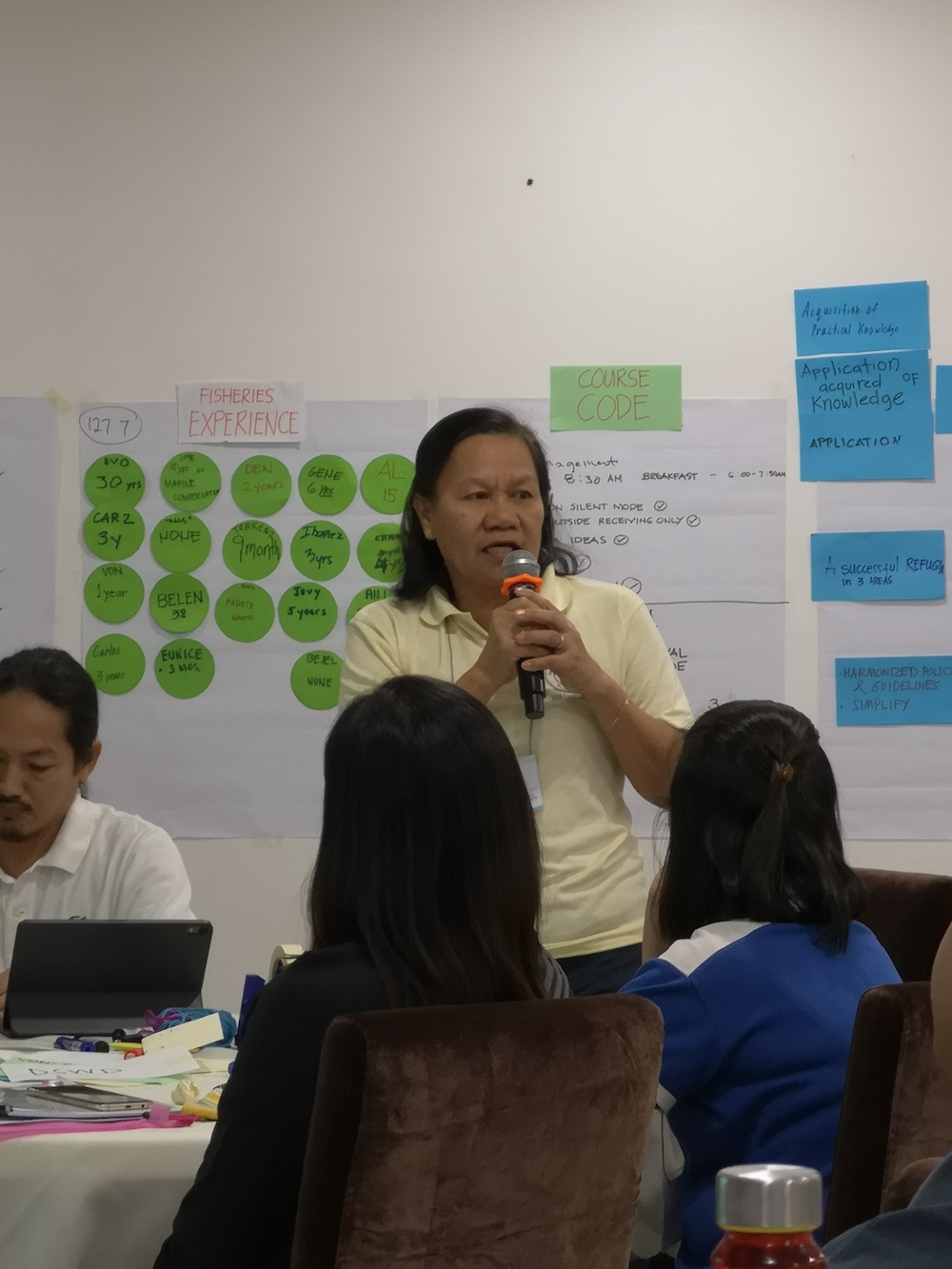
“The five-day course training provided fundamental knowledge about the concepts and principles of fisheries refugia and ecosystem approach, and the processes to manage our fishery resources effectively. Also, the trainer and facilitators led several workshops and activities to help the participants grasp the importance and goal of fisheries refugia establishment and management. Consequently, it emphasized the vital role of all stakeholders from the formulation up to the implementation and monitoring aspects of the Management Plan. Furthermore, it offered a diversified perspective from people in different organizations, which resulted in a more holistic approach to fisheries management.”
(Edgar P. Paalan Technical Staff Provincial Fishery Office- Northern Palawan).
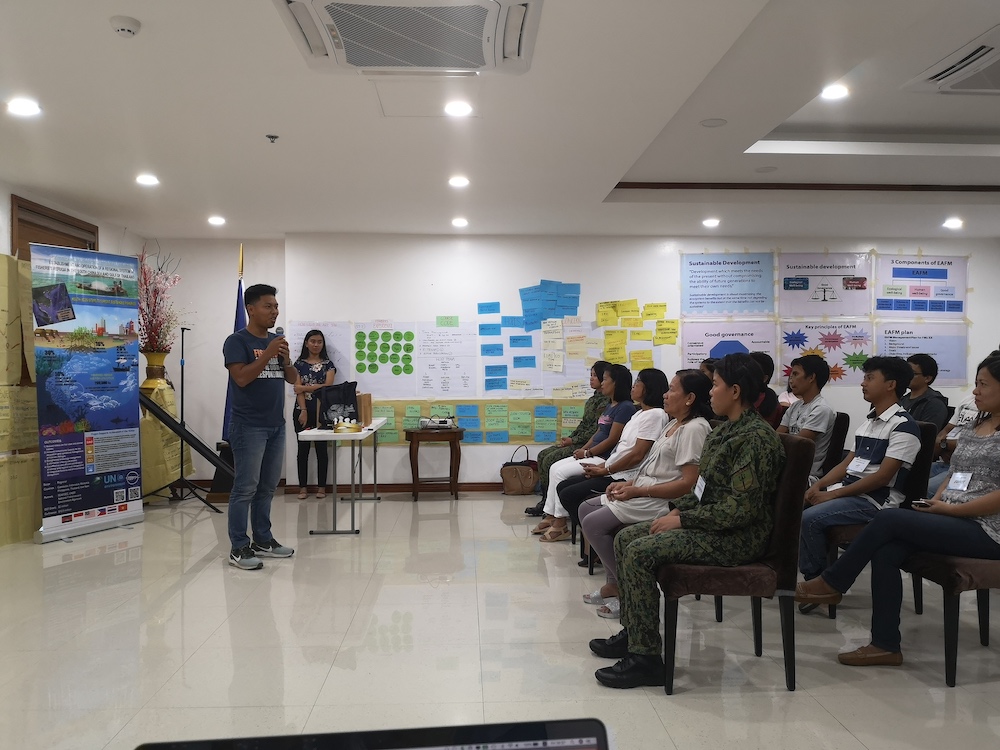
For more detailed information, please visit our website: https://fisheries-refugia.org.
Updated on 12 Nov.2021
